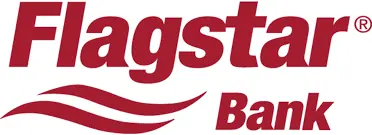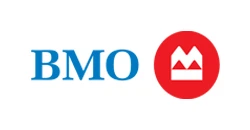2025 FHA Loan Limits in New Hampshire
If you’re looking to purchase a home in New Hampshire, you may qualify for a loan backed by the Federal Housing Administration (FHA). These loans offer less stringent qualification requirements than traditional loans.
New Hampshire FHA loan limits vary by county, ranging from $524,225 for single-family homes in the majority of counties, up to $914,250 in two of the more expensive metro areas near Boston. Here’s what you need to know about the qualifications and how to get your application started.
New Hampshire FHA loan limits by county
New Hampshire single-family FHA loan limits
| County name | One unit | Two units | Three units | Four units | Median sales price |
|---|---|---|---|---|---|
| BELKNAP | $524,225 | $671,200 | $811,275 | $1,008,300 | $390,000 |
| CARROLL | $524,225 | $671,200 | $811,275 | $1,008,300 | $445,000 |
| CHESHIRE | $524,225 | $671,200 | $811,275 | $1,008,300 | $300,000 |
| COOS | $524,225 | $671,200 | $811,275 | $1,008,300 | $170,000 |
| GRAFTON | $524,225 | $671,200 | $811,275 | $1,008,300 | $350,000 |
| HILLSBOROUGH | $546,250 | $699,300 | $845,300 | $1,050,500 | $475,000 |
| MERRIMACK | $524,225 | $671,200 | $811,275 | $1,008,300 | $406,000 |
| ROCKINGHAM | $914,250 | $1,170,400 | $1,414,750 | $1,758,200 | $795,000 |
| STRAFFORD | $914,250 | $1,170,400 | $1,414,750 | $1,758,200 | $795,000 |
| SULLIVAN | $524,225 | $671,200 | $811,275 | $1,008,300 | $350,000 |
How are FHA loan limits determined?
FHA loan limits fluctuate from year to year based on the conforming loan limits for traditional mortgages, which are set by the Federal Housing Finance Agency (FHFA). For 2025, the conforming loan limit is $806,500 in most areas.
FHA loan limits are set at a percentage of these conforming loan limits. The “floor” (or the lowest loan limit) is calculated at 65% of the conforming loan limit, which in 2025 equals $524,225 for a single-unit property. The “ceiling” (or highest loan limit for high-cost areas) for 2025 is $1,209,750, which is calculated at 150% of the conforming loan limit.
There are even higher loan limits of up to $1,814,625 in Alaska, Hawaii, Guam and the U.S. Virgin Islands, which are designated as special exception areas because of the higher cost of construction and other factors.
How to qualify for an FHA loan in New Hampshire
In general, FHA loans are easier to qualify for than traditional loans. If you don’t have a large down payment or your credit score isn’t very high, you may still qualify for one. There are, however, still a number of boxes you must be able to check in order to qualify FHA-backed loan for a single-unit property:
- Minimum 3.5% down payment: The down payment required for an FHA loan depends on your credit score. You can have a down payment as low as 3.5% if your credit score is at least 580. You’ll need 10% down if your credit score is between 500 and 579.
- Minimum 500 credit score: The lowest credit score that will qualify you for an FHA loan is 500. You’ll need a down payment of 10% if it’s below 58 versus 3.5% if your credit score is 580 or above.
- Maximum 43% debt-to-income ratio: In general, you need a debt-to-income ratio of no more than 43%. That’s calculated by dividing your total debt by your pre-tax income. However, if you have a strong credit score and extra cash reserves, you may qualify with a debt-to-income ratio up to 50%.
- Mortgage insurance: In order to take out an FHA loan, you’re required to have two types of mortgage insurance: Upfront mortgage insurance premium (1.75% of the loan amount) and an annual mortgage insurance premium, which is between 0.15% and 0.75% of the loan amount, depending on the loan term, amount and other factors.
- Appraisal and inspection: Both an FHA appraisal and an inspection are required for FHA loans. The cost typically ranges from $400 to $700.
- Occupancy: The property you’re purchasing the loan with must be your principal residence for at least a year. HUD defines that as “a property that will be occupied by the borrower for the majority of the calendar year.”
Buying a multifamily property with an FHA loan
If you’re interested in purchasing a multifamily home with two to four units and perhaps want to start house hacking, you may also qualify for an FHA loan. However, the loan limits and borrower requirements are a bit different than those for single-unit FHA loans. Requirements for multifamily properties include:
- Occupancy: The owner must live in one of the units for one year.
- Down payment: A 3.5% minimum down payment is required.
- Credit score: A minimum credit score of 580 is required with a 3.5% down payment, but it can be as low as 500 with a 10% down payment.
- Cash reserves: If you’re buying a property with three to four units, you must have cash reserves equal to three months’ worth of PITI (principal, interest, taxes and insurance) payments.
The 2025 FHA loan limits for multifamily properties in New Hampshire are:
| Number of units | Low-cost FHA loan limit |
|---|---|
| Two | $671,200 |
| Three | $811,275 |
| Four | $1,008,300 |
FHA lenders in New Hampshire
| Lender | LendingTree rating | Minimum FHA credit score | |
|---|---|---|---|
 |  Read our review | 580 | |
 |  Read our review | 580 | |
 |  Read our review | 580 | |
 |  Read our review | 620 | |
 |  Read our review | 580 |
Compare FHA Loans for Free

